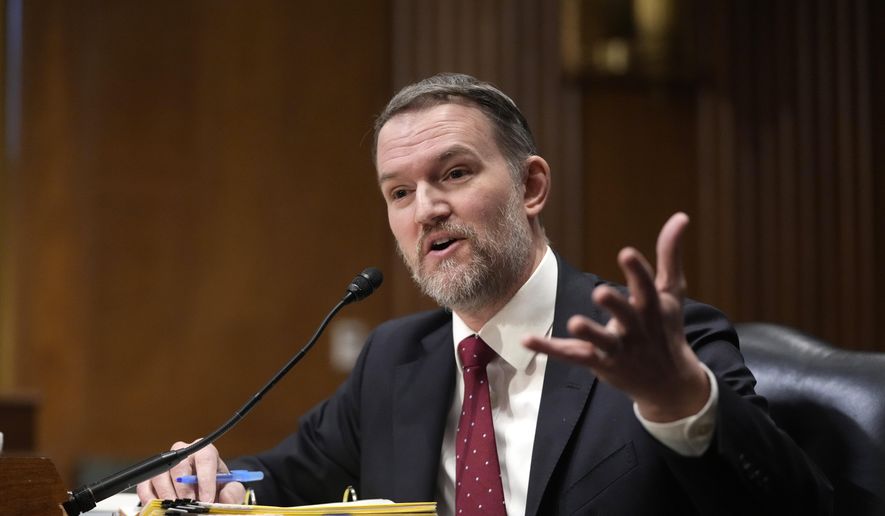The U.S. and Switzerland have reached a trade deal that will reduce President Trump’s tariffs on the European nation from 39% to 15%, a top administration official said.
U.S. Trade Representative Jamieson Greer said the deal, which includes tiny Liechtenstein, “tears down longstanding trade barriers that have held U.S. exporters back and secures billions in new investment on American soil — investment that will generate thousands of good-paying jobs in every state.”
Switzerland pledged to facilitate $200 billion worth of investment in the U.S. and Liechtenstein, which now faces a 15% tariff on its goods, pledged $300 million toward American projects.
The Swiss government confirmed the deal in a post on X.
“Thanks to President Trump @POTUS for the constructive engagement,” it wrote.
Switzerland said it would reduce tariffs on American industrial products, seafood and farm products that Switzerland considers “non-sensitive.”
It will grant duty-free quotas on certain products, including 500 tons of beef, 1,000 tons of bison meat and 1,500 tons of poultry meat.
“The date for implementing these market access concessions will be coordinated with the U.S. to ensure that customs duties are reduced at the same time,” the Swiss government said.
Switzerland, home to major drugmakers, banks and watchmakers, was taken aback in July when Mr. Trump slapped a 39% tariff on its goods.
Mr. Trump is basing his tariff levels in part on the difference between how much a country sells to the U.S. and how much less that nation buys from American producers. He’s demanding investments within the U.S. and better foreign treatment of American goods in exchange for lower tariff rates.
The U.S. trade deficit with Switzerland was $38.3 billion in 2024.
“Although overall tariffs remain higher than before the additional tariffs were introduced in April, the agreed reduction in additional tariffs is expected to have a positive impact on the Swiss economy,” the Swiss government said.
Mr. Trump is imposing tariffs, or duties on foreign goods brought to U.S. markets, to gain leverage over other nations, protect U.S. industries and create revenue for the Treasury.
Small businesses sued over Mr. Trump’s use of a 1977 law to impose nation-by-nation tariffs, saying he unlawfully usurped taxing powers that rest with Congress.
Key Supreme Court justices were skeptical of the administration’s defense of the tariff structure during recent oral arguments.
Mr. Trump says an adverse ruling would be a catastrophe because it might unwind deals that benefit the U.S.
Earlier this week, the Trump administration struck deals with Argentina, Guatemala, Ecuador and El Salvador that will drop tariff rates on goods that cannot be grown in bulk in the U.S., such as bananas.
Mr. Greer, speaking Friday on CNBC, said Mr. Trump used tariffs to gain leverage in negotiations and is ready to tweak some levies to ensure stable grocery prices for Americans.
“Now we have a critical mass of agreements with countries who make this stuff, so this is good timing,” he said.
• Tom Howell Jr. can be reached at thowell@washingtontimes.com.




Please read our comment policy before commenting.